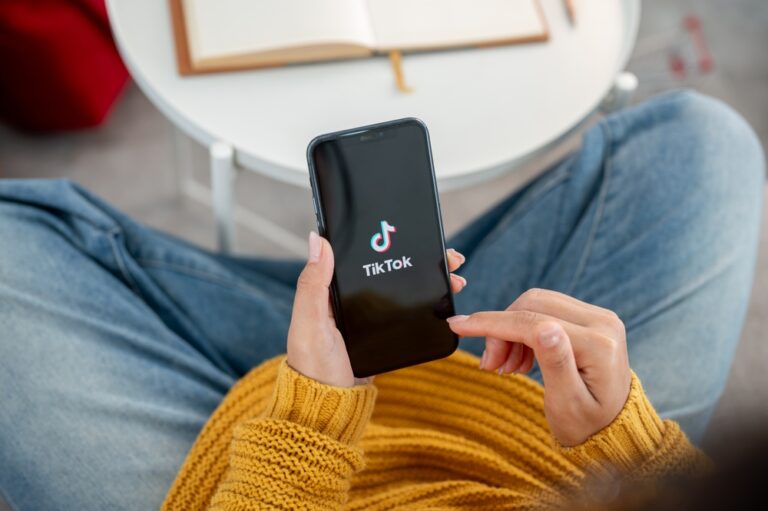A popularização de ferramentas de IA generativa, como ChatGPT, Copilot e Gemini, vem transformando o comportamento de pequenos empreendedores brasileiros. Em 2025, o uso de inteligência artificial entre micro e pequenas empresas cresceu mais de 30%, conforme o estudo da Microsoft e Edelman, que aponta uma adoção inédita dessas tecnologias em todo o país.
No Brasil, as MPEs representam a espinha dorsal da economia, e a digitalização tem sido fator determinante para seu crescimento. Segundo o Mapa de Maturidade Digital, realizado pela Agência Brasileira de Desenvolvimento Industrial (ABDI) e Sebrae, que ouviu 6.933 negócios em todo o país, cerca de 50% dos pequenos negócios já utilizam mídias digitais para vender produtos ou serviços, enquanto 94% consideram a internet essencial para a sobrevivência de suas empresas.
“A inteligência artificial democratizou o acesso a ferramentas que antes estavam restritas a grandes orçamentos. Hoje, qualquer micro ou pequena empresa pode usar IA para automatizar processos, entender melhor seus clientes e tomar decisões baseadas em dados. O que diferencia os negócios de sucesso não é mais o tamanho, mas a capacidade de adaptar-se e integrar essas tecnologias de forma estratégica ao modelo de negócio”, explica o Palestrante de Inteligência Artificial, especialista em dados e professor de MBA da Fundação Getúlio Vargas (FGV), e autor do livro Organizações Cognitivas: Alavancando o Poder da IA Generativa e dos Agentes Inteligentes, Kenneth Corrêa.
75% das MPMEs estão otimistas sobre o impacto da IA em seus negócios
A pesquisa da Microsoft também revelou que 75% das MPMEs no Brasil estão otimistas sobre o impacto da IA em seus negócios. Entre as principais motivações para investir em IA estão: melhorar a experiência do cliente (61%), ganho de eficiência, produtividade e agilidade (54%) e garantir a continuidade do negócio (46%).
“Estamos vivendo um momento único: a IA deixou de ser um diferencial para se tornar uma necessidade. A boa notícia é que nunca foi tão acessível, simples e viável implementar essas soluções, mesmo com recursos limitados. O segredo está em começar pequeno, com foco em resolver problemas reais do negócio”, acrescenta Kenneth.
No entanto, apesar do entusiasmo e dos resultados iniciais promissores, muitas empresas ainda enfrentam desafios na adoção efetiva da tecnologia, seja por falta de estratégia, capacitação ou integração com processos existentes. Um levantamento do Goldman Sachs revela que apenas 14% das grandes empresas aplicam realmente a IA de forma eficaz em suas operações.
O dado mostra que, mesmo com maior acesso a recursos e infraestrutura, a maturidade digital ainda é um obstáculo relevante, e reforça o quanto planejamento e capacitação serão fatores determinantes no próximo ano para o sucesso de qualquer iniciativa com IA, independentemente do porte do negócio.
Formas práticas de usar IA para impulsionar MPEs
Para auxiliar micro e pequenos empresários a navegarem por esse cenário de transformação digital em 2026, Kenneth Corrêa compartilha seis aplicações estratégicas de tecnologias emergentes, baseadas em ferramentas que ele e sua equipe utilizam diariamente, veja a seguir:
1) Atendimento ao cliente 24/7 com automação inteligente
Uma das aplicações mais imediatas da IA para negócios é a criação de um sistema de atendimento automatizado usando ferramentas que já estão disponíveis. A estratégia começa gravando e transcrevendo todas as reuniões com clientes usando plataformas como Read.ai ou Tactiq, criando uma base de conhecimento sobre as dúvidas mais frequentes. Em seguida, o Gemini 2.5 Pro pode ser configurado com essa base para responder automaticamente via WhatsApp ou e-mail. Na prática, isso significa que a equipe ganha entre 5 e 10 horas semanais que antes eram consumidas com atendimentos repetitivos, podendo focar em questões mais estratégicas e complexas.
2) Pesquisa de mercado sem contratar consultoria
Pequenas empresas frequentemente não têm orçamento para contratar consultorias especializadas em análise de mercado, mas isso não significa que precisam tomar decisões no escuro. O Perplexity AI funciona como um pesquisador especializado que analisa concorrentes, identifica tendências e valida ideias de produtos de forma gratuita. Por exemplo, um empreendedor pode perguntar “Quais são as principais reclamações dos clientes sobre produtos similares ao meu no último trimestre?” e receber uma análise completa com fontes citadas. A ferramenta torna pesquisas que antes custariam milhares de reais em consultorias acessíveis a qualquer pequeno negócio, democratizando o acesso à inteligência de mercado.
3) Criação de identidade visual profissional com orçamento mínimo
A aparência profissional de uma marca já não é mais privilégio de empresas com grandes orçamentos. Ferramentas como Looka.com criam pacotes completos de identidade visual – incluindo logo, cartão de visita e papel timbrado – além de gerar mockups e conceitos visuais para campanhas publicitárias. Essas soluções permitem que MPEs tenham uma apresentação de marca comparável à de grandes corporações, nivelando o campo de jogo no que diz respeito à primeira impressão que causam em clientes e parceiros. O investimento é mínimo, mas o impacto na percepção de valor e profissionalismo é significativo.
4) Análise de dados sem ser especialista
A análise de dados sempre pareceu território exclusivo de especialistas, mas ferramentas modernas de IA mudaram completamente esse cenário. O Polymer Search conecta diretamente às planilhas de vendas e gera dashboards instantâneos que revelam padrões e oportunidades, enquanto o Excel Copilot permite fazer perguntas em linguagem natural como “Qual produto teve melhor margem no último trimestre?” sem precisar dominar fórmulas complexas. Para apresentações executivas, o ExcelDashboard.ai transforma planilhas em relatórios visuais profissionais em questão de minutos. Essas ferramentas eliminam a barreira técnica e permitem que qualquer empreendedor tome decisões baseadas em dados concretos, não apenas em intuição.
5) Conteúdo em escala para redes sociais
A produção de conteúdo consistente para redes sociais é um dos maiores desafios de pequenas empresas, mas a IA generativa transformou radicalmente essa equação. O NotebookLM pode transformar catálogos de produtos em episódios de podcast automáticos com dois apresentadores conversando naturalmente sobre os itens, enquanto o Gemini 2.5 Pro com Nano Banana integrado gera posts completos para redes sociais, incluindo texto e imagem. Para negócios locais, o Suno.com cria jingles profissionais para campanhas. Na prática, isso significa que uma única pessoa pode produzir volume de conteúdo equivalente ao de uma equipe de três profissionais, mantendo presença digital ativa e relevante sem comprometer a qualidade ou estourar o orçamento.
6) Documentação automática de processos e projetos
A documentação de processos e reuniões consome horas preciosas que poderiam ser dedicadas ao crescimento do negócio. O AudioPen resolve isso transformando brainstorms falados em documentos estruturados instantaneamente – basta gravar suas ideias enquanto dirige ou caminha. O Read.ai, vai além e grava reuniões automaticamente, gerando briefings e atas sem intervenção manual. Esses documentos podem então ser convertidos em apresentações profissionais pelo Gamma.app.
Desafios e o caminho à frente
Apesar do cenário promissor, o estudo “Transformação Digital nos Pequenos Negócios” do Sebrae revela que 66% das micro e pequenas empresas brasileiras continuam na fase inicial do processo de transformação digital, 30% estão na fase intermediária e apenas 3% podem ser considerados líderes em suas áreas. Isso demonstra que, embora o interesse seja alto, ainda há um longo caminho a percorrer.
Entre os principais desafios estão a falta de conhecimento técnico, recursos financeiros limitados e resistência cultural à mudança. No entanto, o levantamento da Microsoft aponta que 20% das MPEs consideram a adoção de IA um desafio, número que tende a diminuir conforme a tecnologia se torna mais acessível e intuitiva.
“O maior erro que uma MPE pode cometer é pensar que precisa fazer uma transformação digital completa de uma só vez. A estratégia mais eficaz é identificar um problema específico do negócio — seja no atendimento, nas vendas ou na gestão — e implementar uma solução tecnológica para resolvê-lo. Os resultados rápidos geram confiança e conhecimento para os próximos passos. A transformação digital é uma jornada, não um destino”, aconselha Kenneth Corrêa.
O futuro é agora
A convergência de IA, automação e análise de dados está redefinindo o que é possível para micro e pequenas empresas. O acesso democratizado a essas tecnologias cria um campo de jogo mais equilibrado, onde agilidade, criatividade e foco no cliente podem superar o tamanho e os recursos das grandes corporações.
Com 98% das empresas planejando utilizar IA até o final de 2025, conforme dados da HubSpot, e projeções da Gartner indicando que até 2025 mais de 80% das grandes empresas terão integrado soluções de IA em seus processos, fica claro que a transformação não é mais uma opção, mas uma necessidade estratégica.
“As MPEs que abraçarem a tecnologia hoje estarão melhor posicionadas para crescer, escalar e prosperar no futuro. A IA não substitui a essência humana dos negócios — a criatividade, a empatia, o relacionamento — mas amplifica essas qualidades, permitindo que empreendedores foquem no que realmente importa: criar valor para seus clientes e construir negócios sustentáveis e relevantes. O momento de agir é agora”, finaliza Kenneth Corrêa.










